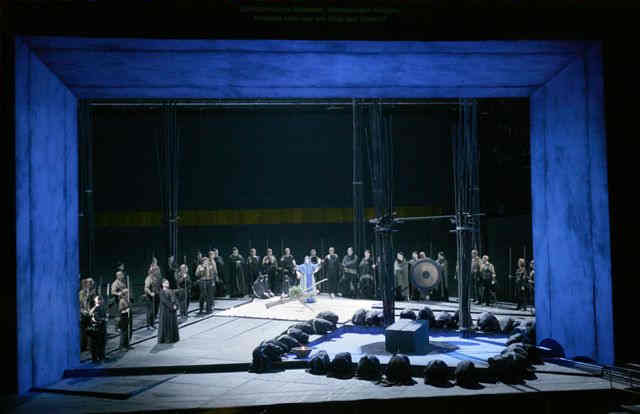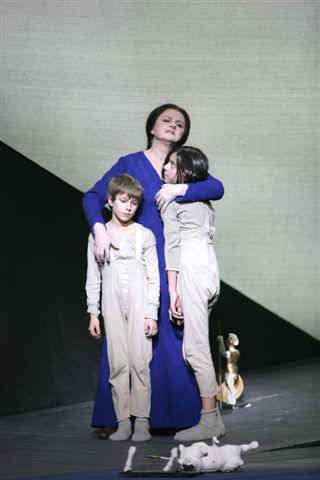Other Links
Editorial Board
- Editor - Bill Kenny
- London Editor-Melanie Eskenazi
- Founder - Len Mullenger
Google Site Search
SEEN
AND HEARD INTERNATIONAL OPERA REVIEW
Bellini, Norma:
Bavarian State Opera, Munich,
Conductor: Friedrich Haider. 2.2.2008 (BM)

To hear local people talk, Munich’s Norma is above all
about Edita Gruberová’s stage debut in the title role, so first
things first: she is a phenomenon, and it would probably be
impossible to name another artist whose coloraturas were still
this stunning at the age of almost 60. According to the diva
herself (and she truly is a diva, in the best possible sense of
the word) she has reached her personal best as well as her
personal limits with this role, the culmination of a career that
has been seemingly endless, just like Bellini’s melodies. It is
easy to be in two minds about her Norma, but I find the many
comparisons to Callas et al tiresome – perhaps we have simply come
to expect a more dramatic voice for the Druid priestess due to
these past signature performances, so let us not forget that most
of them had to transpose “Casta Diva” to a lower key whereas
Gruberová sings it as Bellini set it, in G major. Thanks to her
impeccable technique, she treats her audience to the immense
sensitivity of her delicately crafted bel canto singing
throughout – a trait which is wholly reflected in her acting, I
might add even though in this respect only, some personal
limits may have been surpassed - yet it would seem unfair to
expect her to look or move like a comparatively young woman.

Bettina Mara
Pictures ©
Wilfried Hösl.
Reproduced with special thanks for Herr Hösl's
personal authorisation
to use his photographs.
